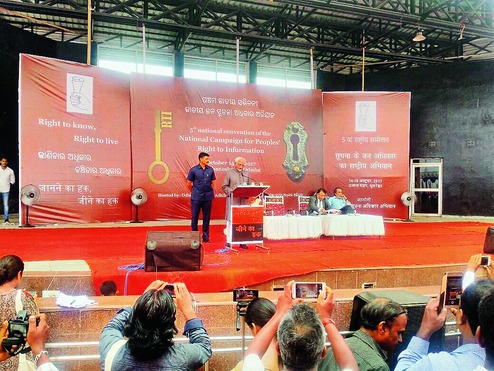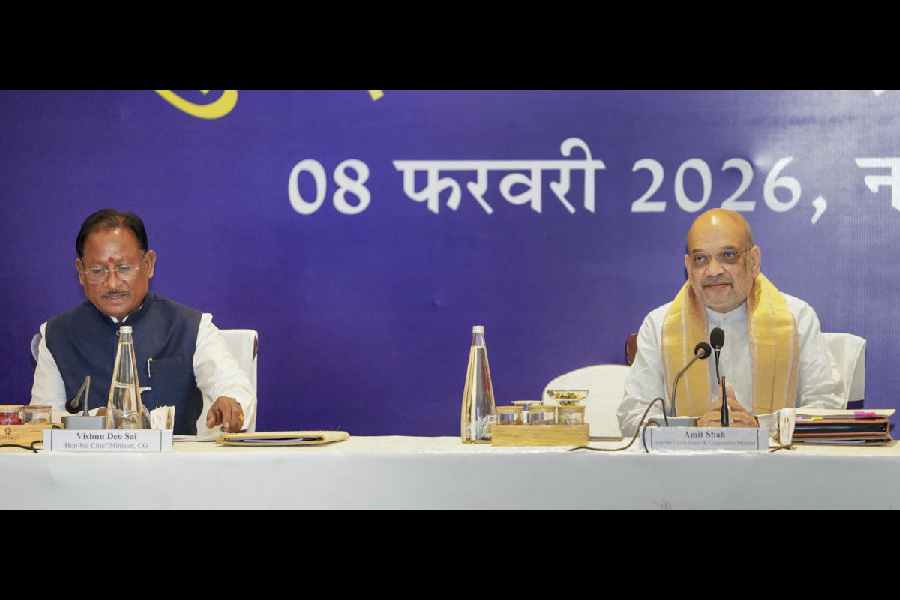
Bhubaneswar, Oct. 14: Former Vice-President Hamid Ansari today questioned the efficacy of the Right to Information (RTI) Act in actual implementation.
Inaugurating the fifth convention of the National Campaign for People's Right to Information, he said: "To answer this, the 12-year experience is to be analysed critically from the viewpoint of the information-seeker, particularly amongst the poor and needy and those in the rural areas. It is here that response of the information giving agencies, and the rules and procedures under which information is sought to be denied, becomes critical."
The RTI users and activists from across the country gathered in the city today to reflect on the current challenges in the act's implementation.
The three-day convention, which is being hosted by the Odisha Soochana Adhikar Abhiyan, began at Utkal Mandap here today to celebrate 12 years of the use of the RTI.
"According to credible civil society activists and organisations, many information-seekers on sensitive issues have been threatened, and some even lost their lives. Specific allegations in this regard have generally gone unanswered," he said, adding that any serious discussion on the act must be premised on its intent and purpose as spelt out in the preamble.
"It is not an anti-corruption act, but given the level of transparency, the RTI Act is intended to achieve the objective. It is the beginning of a long journey. Since other nations had already started on this journey, we can also benefit by taking cognisance of their experience and best practices," he said.
The effectiveness of the RTI depends a lot on the functioning of information commissions, he said.
"They are critical to the RTI regime and must be endowed with the resources for discharging their functions efficiently. Available data indicates high levels of pendency. This cannot but impede the achievement of the stated objectives. The only corrective is public pressure," he said. Activists shared their experiences of the use of the law and discuss the act's impact on governance in the country.
A mix of plenary sessions, parallel workshops and an RTI mela are also being organised to ensure peoples' participation. The RTI mela is being hosted in collaboration with various citizens' groups, where campaigns and organisations from other states will put up kiosks showcasing the use of the RTI Act.
The convention aims to provide an opportunity to deliberate on the current challenges impeding the effective implementation of the act, including attacks on RTI users. Recent developments around the right to privacy and how it is likely to interface with peoples' right to information will also be deliberated upon.
"The convention will also provide an opportunity to discuss and develop strategies for safeguarding freedom of speech and expression, which is the cornerstone of any democracy and enshrined in the Article 19 (1)(a) of the Constitution from which the right to information flows," said Pradip Pradhan, state convener of the organisation.
Information commissioners, government functionaries, RTI users and people associated with movements and campaigns from across the country are taking part in the convention.










